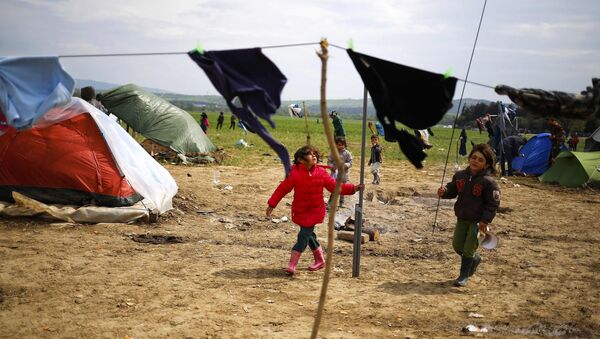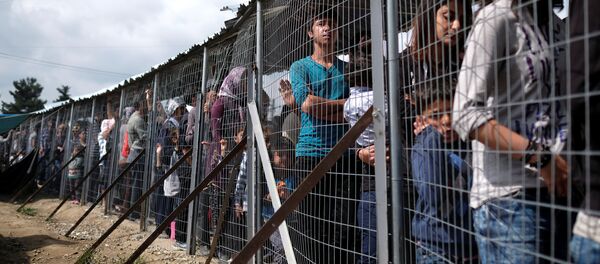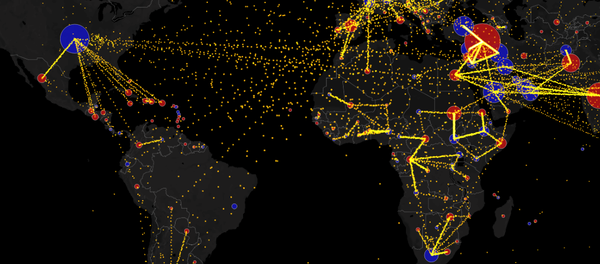On July 1, the EU border agency Frontex said in a report that the number of undocumented migrants crossing into Europe through the Western Balkan route fell by 84 percent in the first quarter of 2016, which was linked to more restrictive measures being implemented at a regional level and the closure of the Western Balkan transit corridor.
"There is a decrease in a number of the undocumented migrants. Probably, up to a certain point migrants have understood that they cannot pass to Europe so [it] may force them to find another route from the North. They will try to arrive through the Central Asia, Russia and Finland or the Baltic states," Makis Voridis, a former minister for infrastructure, transport and networks, said on the sidelines of the OSCE PA annual meeting underway in Tbilisi, Georgia on July 1-5.
Voridis added that the route from the north would prove to be very difficult but that migrants could still risk it.
"The decision of NATO to be involved in control of migratory flows through countering criminal networks smuggling refugees into Europe across the Aegean Sea will be evaluated at the summit," the Greek parliamentarian said.
Europe is currently facing a major refugee crisis, with hundreds of thousands of migrants attempting to reach wealthy EU member states through various routes, including via Italy, Greece, Turkey and the Balkan states. Despite Brussels' efforts to curb the migration influx, many people still continue to attempt to reach the European Union.




